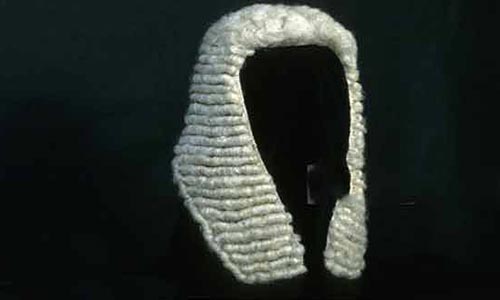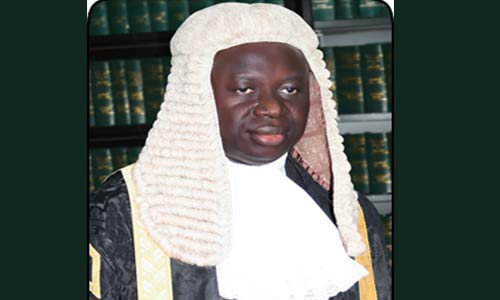JUDICIARY NEWS 20/01/2022
‘Dirty’ Plea Bargain: Judge Questions How N200m Crude Recovered From Oil Thieves Was Sold For N17m

A judge of the Federal High Court in the Warri Division, Delta State, has questioned how N200 million worth of crude oil recovered from some oil thieves was sold for N17 million
The judge, Okon Abang, also queried the conduct of the federal prosecutor, Onyeka Ohakwe, for filing a “dirty” plea bargain agreement which gave the oil thieves from whom the crude oil was recovered a soft-landing.
Ms Ohakwe, who is of the Federal Ministry of Justice, watered down the charges initially filed against the oil thieves and followed it up with a plea bargain agreement that helped the criminals to walk free after paying a paltry N2,000 fine each.
Ms Ohakwe, in the amendment she filed in October last year, traded the original charges that carried life jail with the one punishable merely by the inconsequential N2,000 fine.
Delivering judgement in the case on November 24, 2021, the trial judge described the plea bargain agreement as “sordid, and morbid, very unpleasant and dirty.”
He also expressed frustration of being bound by law to accept the plea bargain which he said inhibited him from imposing a heavy punishment on the defendants to emphasise the contribution of oil theft to the nation’s economic adversity.
Mr Abang also found it worrisome that apart from the defendants walking free without getting the deserving punishment, the 4,000 metric tons of crude oil valued at N200 million was sold off at just N17 million.
Before Mr Abang took over the case, another judge of the Federal High Court, Emeka Nwite, had ordered the product to be disposed and the proceeds kept in an interest-yielding account by the registrar of the court pending the conclusion of the trial.
Mr Nwite, by his order issued on October 6, 2019, directed the registrar of the court along with the Department of Petroleum Resources (DPR) to carry out the order.
The prosecution reported the execution of the court’s order in a six-paragraph affidavit filed in court on November 11, 2021, disclosing that the product, valued at N200 million as of 2015, was sold off in a public auction at N17 million.
Fuming over the huge disparity between the original value of the product and how much it was sold, Mr Abang said: “the court did not order the sale of the crude oil by public auction”.
There was also no evidence of the remittance of the N17million into the government’s account placed before the court, the judge observed.
He added that that the affidavit filed by the prosecution “did not disclose whether the bidding process was carried out before the sale”.
Whether or not it was advertised, Mr Abang said: “though, it is not clear, I think the sale was carried out by private arrangement”.
“The point the court is making here is that N200million worth of crude oil was sold at N17,396,936.70. Where is the balance of N172,400,000? Learned counsel for the prosecution, O.E Ohakwe, has not provided the answer. I weep for this nation,” the judge said.
He also expressed worry over the prosecution’s concession that the vessel caught with the stolen crude oil be released to the defendants upon payment of N5million fine stipulated in the plea bargain agreement.
Had the defendants been charged under the “proper law”, the vessel ought to be forfeited to the federal government, the judge said.
According to him, “many heads will roll” if he ordered an investigation. “But this is not the case before me,” he said.
In line with the plea bargain agreement, which he said he had no power to reject, Mr Abang ordered the 10 defendants, including the vessel, to pay the total N20,000 fine – N2,000 per defendant.
But in a slight departure from the plea agreement, Mr Abang ordered that the about N17 million proceeds of the sale of the stolen crude oil with accrued interest must be paid into the federation account kept by the Central Bank of Nigeria (CBN).
He said the rest of the defendants should not be released from prison until the evidence of the lodgment of the money in the federation account is filed before the court.
In his concluding comments, the judge called on the National Assembly to “urgently revisit the plea bargain arrangement in section 270 of ACJA.”
The questionable deal in the oil theft case came just some months after the Attorney-General of the Federation, Abubakar Malami, touted his efforts at curbing the abuse of the plea bargain agreement process
“The plea bargain arrangement was well intended but it has been abused by the learned counsel for prosecution, in this case, O.E, Ohakwe,” he said.
The nine oil thieves and their vessel, which was loaded with the stolen crude oil, were arrested by the Nigerian Navy during a patrol of the offshore Forcados/Escravos, Ogulaha, Delta State, on November 11, 2015.
Altogether, 12 persons and the vessel were arrested, but three of them would later be dropped from the case by the prosecution.
The nine remaining persons prosecuted to the end by the Attorney-General of the Federation’s office are: Adeola Goodness Olanimiji, Olaoluwa Temitope, Kelvin Onyeka, Dare Lukman, Ibrahim Sese, Amaechi Nkwocha, Anayo Chukwu Ejiogu, Emmanuel Ekuma, and Lucky Urhie.
Their vessel, MT Camillie Mongolia (with registration number 7323473), was also charged along with them as the first defendant.
The oil thieves were aboard the vessel loaded with 4,000 metric tons of crude oil when they were arrested by navy operatives, who were on patrol in the Nigerian Navy Ship (NNS) Delta.
After the navy’s preliminary investigations, the case was transferred to the Nigeria Police for further investigation, which revealed that the defendants engaged in dealing in petroleum products without lawful authority, and, indeed, stole 4,000 metric tons of crude oil, valued at N200 million.
The Office of the Attorney-General of the Federation subsequently took over the case and filed three charges dated April 8, 2016, against 13 suspects and proposed to call six witnesses to prove its case against them.
The defendants were charged in two of the counts with dealing in petroleum products without licence and being found with a vessel loaded with 4,000 metric tons of crude oil valued at N200 million in violation of section 1(17) of the Miscellaneous Offences Act 2004 which carries life imprisonment upon conviction.
In the third count, they were accused of stealing 4,000 metric tons of crude oil valued at N200 million property of the federal government of Nigeria, an offence punishable under section 390 of the Criminal Code Act Cap C38 Laws of the Federation of Nigeria, an offence punishable by three years imprisonment.
Over five years after the charges were filed, the prosecution team led by Ms Ohakwe amended the charges preparatory to a plea bargain last year.
The amendment saw the three original counts replaced with only one which was so watered down that it was filed under section 13(2) (b)IV) of the Petroleum Act CAP 10 Laws of the Federation 2004 which prescribes a fine of “not exceeding N2,000” as punishment.
Mr Abang said the Ms Ohakwe-led prosecution somersaulted when it amended the charges to replace life jail and forfeiture of seized product in the former charges with N2,000 fine as punishment in the new charge.
“The prosecution that pledged to prove their case before the court beyond reasonable doubt in April 2016, rather, in October 2021, somersaulted and decided to settle the defendants as if they did not steal 4,000 metric tons of crude oil the property that belongs to everybody in this country,” the judge said.



